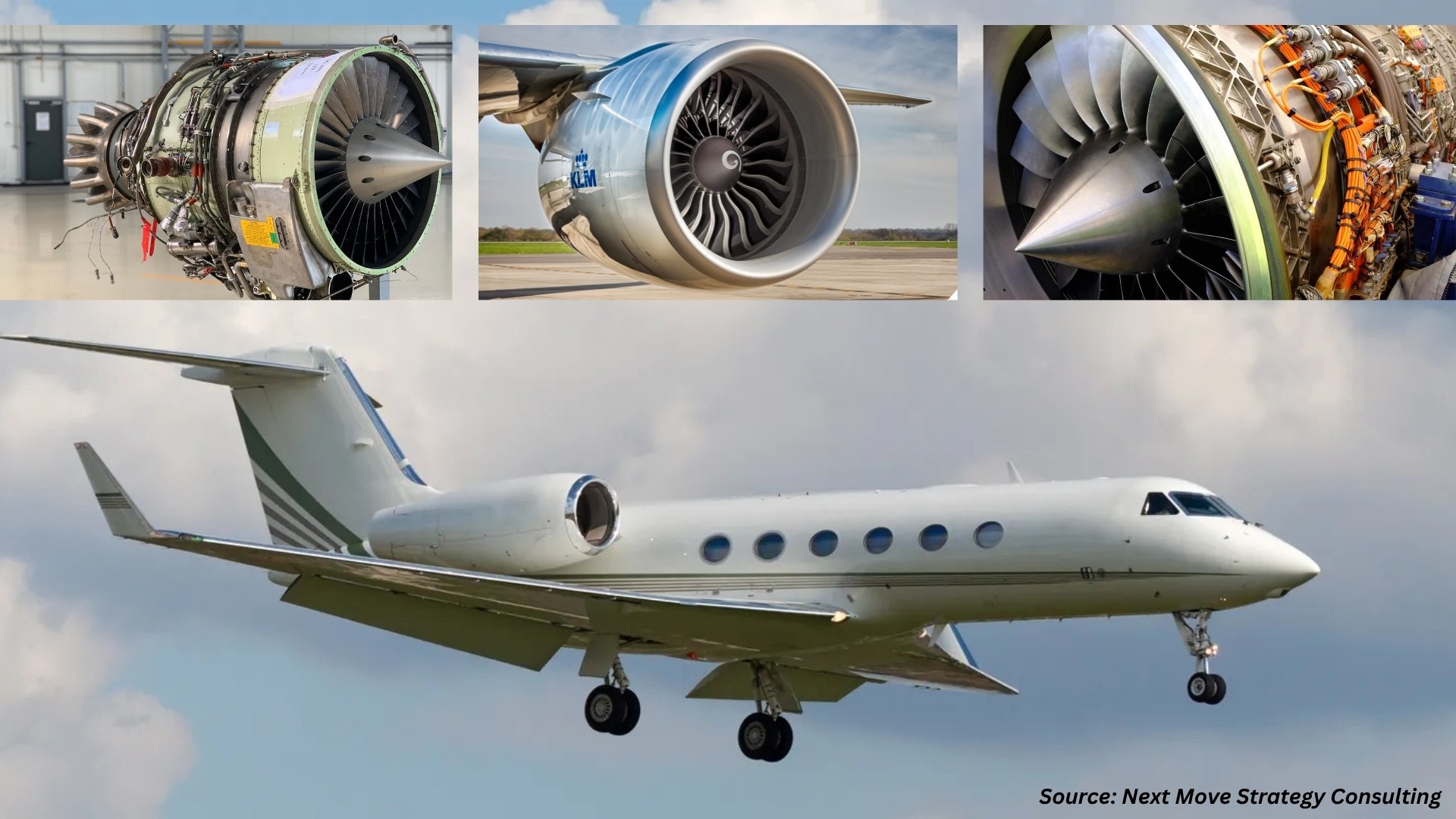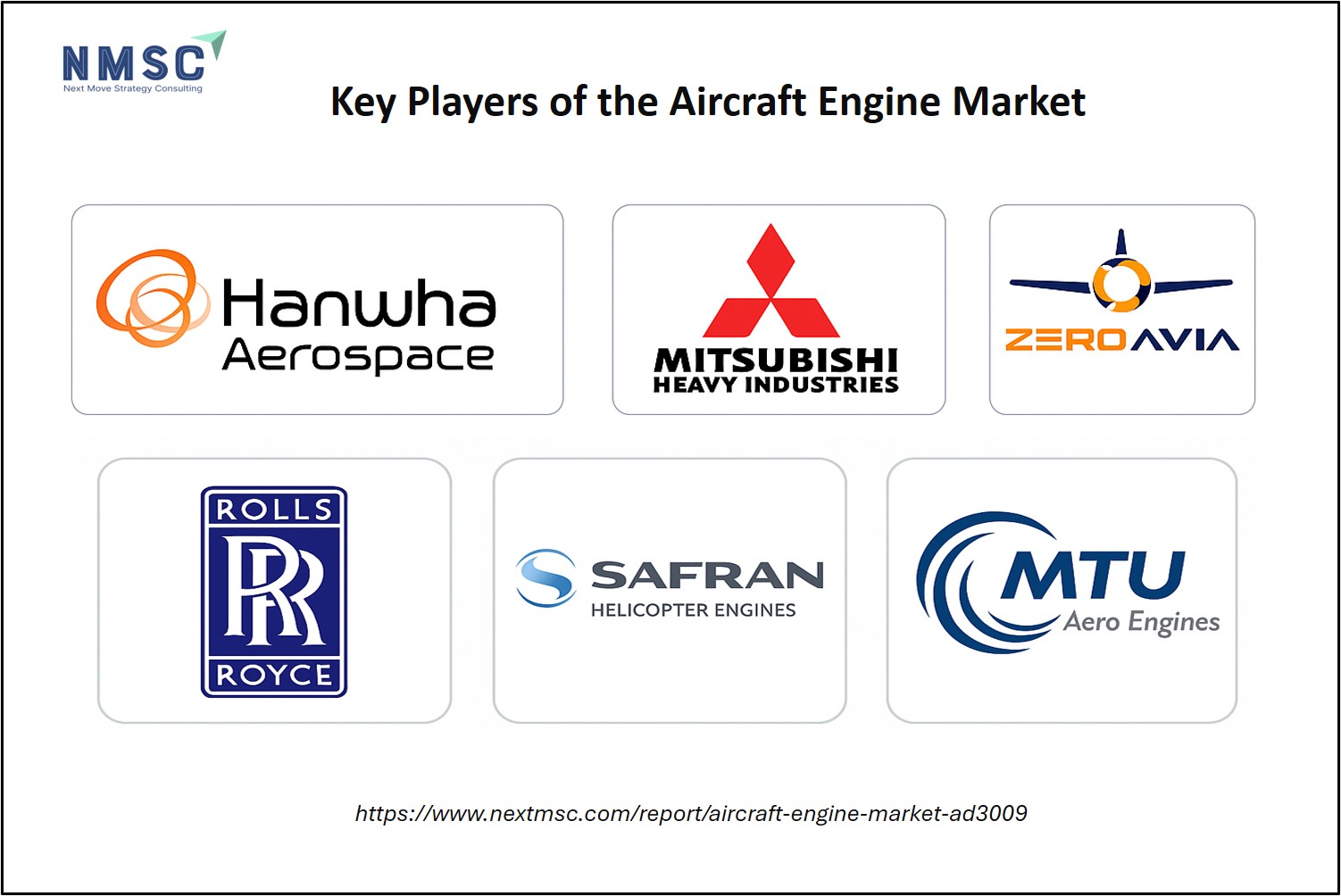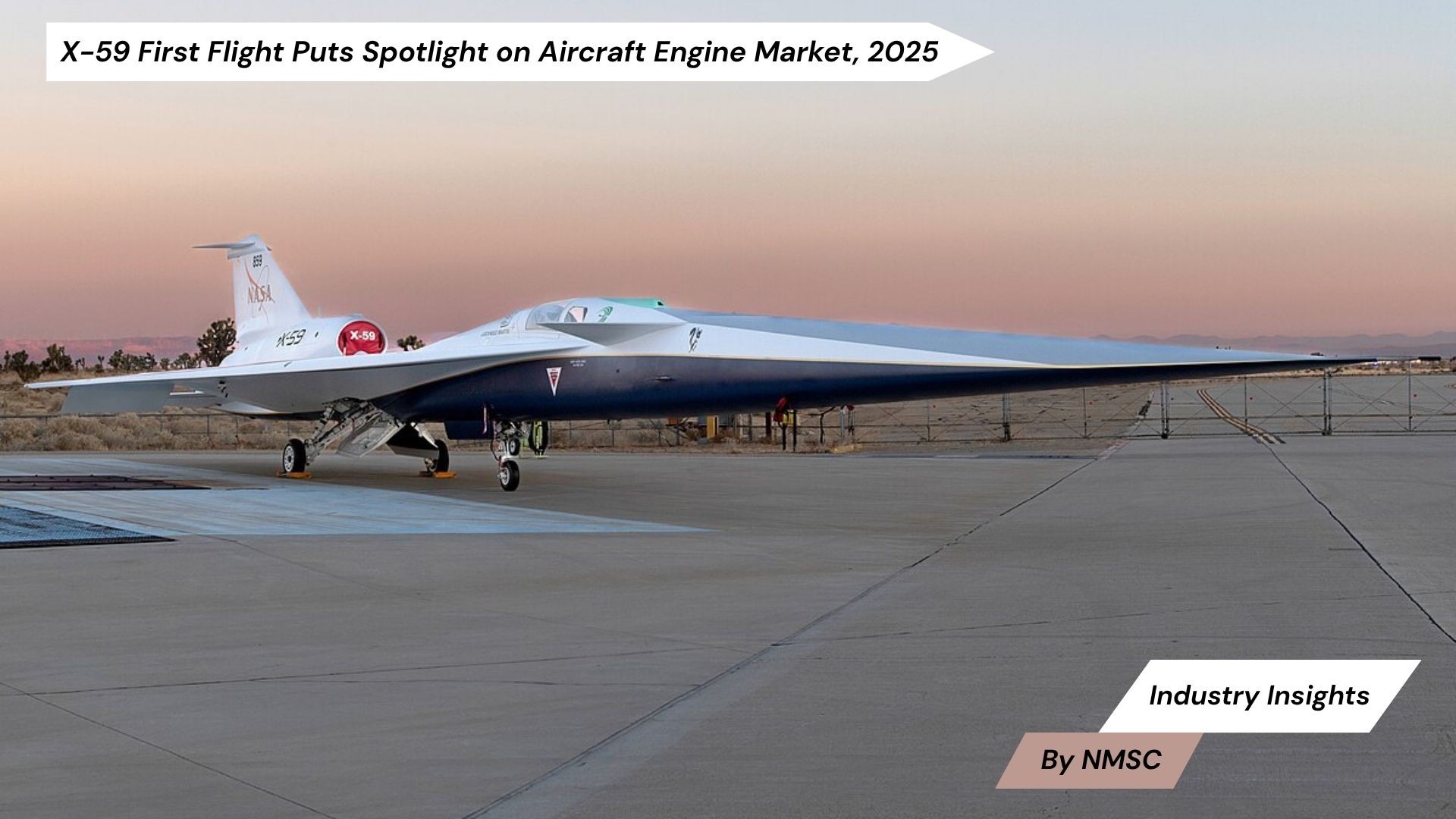Aircraft Engine Market Faces Global Safety and Supply Crisis
Published: 2025-09-11

The global Aircraft Engine Market is undergoing a critical transition in 2025, as new safety regulations, supply chain constraints, and surging demand for air travel converge. With some regions at the center of recent developments, the market is facing a wave of technological recalibration and operational realignment.
From fatal crashes linked to mechanical components to capacity limitations stemming, the industry finds itself navigating a high-stakes landscape where innovation and reliability are not optional, but essential.
Latest Developments: Delays, Failures, and Investigations
In 2025, multiple incidents have highlighted systemic concerns in the global aircraft engine ecosystem:
Supply Chain Constraints in India: Engine-related complications had a substantial impact on the operational strength of domestic carriers, driving up costs and triggering widespread delays for Indian aviation sector. Airlines also struggled with a shortage of skilled workers, including pilots and cabin crew, the lack of trained personnel led to frequent delays and cancellations.
Air India Crash: A preliminary report revealed that cockpit confusion preceded last month’s fatal crash of an Air India jetliner, which claimed the lives of 260 people. The incident occurred after the aircraft's engine fuel cutoff switches were triggered almost simultaneously, cutting off fuel supply to the engines. The Boeing 787 Dreamliner, operated by Air India and en route to London from Ahmedabad, began losing thrust and altitude shortly after takeoff, according to the report released by Indian accident investigators. The crash is now considered the deadliest aviation disaster worldwide in the past decade.
Jeju Air Engine Findings: A Jeju Air plane that crashed in December during an emergency landing following a bird strike may have been able to continue flying using its damaged but still functioning engine, according to a new update from South Korean investigators. However, the Boeing 737-800 instead made a belly landing at Muan Airport without deploying its landing gear, overshooting the runway and crashing into an embankment. The impact triggered a fireball, resulting in the deaths of all but two of the 181 people on board.
Fatal Engine Incident at Milan Airport: According to Italy’s national news agency ANSA. All flight operations at Milan Bergamo Airport were halted for nearly two hours after a man was fatally pulled into the engine of a departing aircraft.
Regional Momentum in Aircraft Engine Development
South Korea’s Hanwha Aerospace Boosts Regional Engine Capabilities
Hanwha Aerospace of South Korea intends to invest approximately 40 billion won (around $28.9 million) by 2025 to establish a new aircraft engine manufacturing facility, as part of its broader goal to develop indigenous engines for fighter jets like the KF-21.
The announcement follows the South Korean government's decision last year to include advanced aircraft engines among 30 strategic technologies targeted for investment under a 15-year plan aimed at strengthening domestic defense capabilities.
U.S.–India Jet Engine Pact Enhances Regional Defense Ties in the Indo-Pacific
U.S. Defence Secretary Lloyd Austin described the India–U.S. agreement to jointly produce fighter jet engines for the Indian Air Force as “revolutionary,” emphasizing the strong and growing partnership between the two nations.
The milestone agreement was unveiled last June during Prime Minister Narendra Modi’s historic State Visit to the United States. As part of the deal, General Electric signed a memorandum of understanding with Hindustan Aeronautics Limited (HAL) to co-produce F-414 fighter jet engines within India.
Turkey’s Baykar Drives Regional Self-Reliance with Jet Engine Investment
Baykar, the Turkish drone manufacturer, is ramping up efforts to internalize more component production in response to global supply chain challenges. The company plans to invest $300 million in developing its own jet engines, according to its chief executive in a statement to Reuters.
Baykar drones have garnered international recognition for their effective deployment by Ukraine's military against Russian forces, as well as their use in conflicts in Azerbaijan and North Africa.
Germany’s MTU Aero Engines Reports Strong Q2
German engine manufacturer MTU Aero Engines reported a 41% increase in operating profit for the second quarter, surpassing market expectations. The strong performance was fueled by robust sales in its spare parts and commercial maintenance segments.
The company, which supplies engines to Airbus and Boeing, posted adjusted earnings before interest and taxes of 357 million euros ($420.22 million), up from 252 million euros in the same period last year and well above the company-provided consensus estimate of 300 million euros.
Summary Table:
|
Country/Company |
Key Investment/Action |
Additional Notes |
|
South Korea / Hanwha |
Investing approx. 40 billion won (~$28.9 million) by 2025 |
Aligned with South Korea’s 15-year strategic tech plan including aircraft engines |
|
United States & India |
GE and HAL to co-produce F-414 jet engines in India |
Described as “revolutionary” by U.S. Defense Secretary; part of Modi’s State Visit to U.S. in June |
|
Turkey / Baykar |
$300 million investment in indigenous jet engine development |
Drones gained international acclaim in Ukraine, Azerbaijan, and North African conflicts |
|
Germany / MTU Aero Engines |
Reported 41% increase in Q2 operating profit |
Adjusted EBIT reached €357 million (~$420.22 million), well above consensus estimate (€300 million) |
Key Players of the Aircraft Engine Sector:
Rolls-Royce Secures TESS Contract to Support RAF Typhoon Engines
Rolls-Royce has secured a five-year contract with the UK Ministry of Defence to provide maintenance and support services for the EJ200 engine, which powers the Royal Air Force’s Typhoon fighter jets.
Under the Typhoon Engine Support Solution (TESS), Rolls-Royce will continue delivering maintenance and repair services for 130 EJ200 engines, directly supporting around 200 jobs. The contract will also strengthen the UK-based supply chain, helping to sustain up to 2,400 jobs across the country that are critical to maintaining the nation’s combat air expertise. TESS will preserve key skills essential for enabling the Royal Air Force’s current operational capabilities while also supporting the transition to future programs such as the Global Combat Air Programme (GCAP).
Safran and MTU Launch EURA Joint Venture for European Military Helicopter Engines
Safran Helicopter Engines and MTU Aero Engines have officially signed a cooperation agreement to establish a 50/50 joint venture named EURA (short for European Military Rotorcraft Engine Alliance). This newly formed company will serve as the foundation of a broader initiative that will involve collaboration with industrial and technological partners from various European countries. The launch of EURA marks a significant milestone in the joint effort to develop a fully European engine for the next generation of military helicopters in Europe.
The signing ceremony was held at the French Embassy in Berlin, attended by François Delattre, the French Ambassador to Germany, and Thomas Hitschler, Parliamentary State Secretary at the German Federal Ministry of Defense.
GTF Advantage Engine Earns FAA Certification for Airbus A320neo
The "GTF Advantage" engine, developed with the involvement of Mitsubishi Heavy Industry Aero Engines, Ltd. (MHIAEL)—a subsidiary of Mitsubishi Heavy Industries (MHI) Group and a member of the Japanese Aero Engines Corporation (JAEC)—has received type certification from the U.S. Federal Aviation Administration (FAA) for use on the Airbus A320neo family.
The engine was developed under the International Aero Engines (IAE) consortium, a global joint venture between Pratt & Whitney, MTU Aero Engines, and JAEC. Within this collaboration, MHIAEL is responsible for manufacturing the combustion module and handling engine maintenance.
Hanwha Plans New Jet Engine Plant
South Korea's Hanwha Aerospace has announced plans to invest approximately 40 billion won (around $28.9 million) by 2025 to establish a new aircraft engine manufacturing facility. This move is part of the company’s long-term goal to develop indigenous engines for fighter jets, including the KF-21. As the nation’s largest defense firm by revenue, Hanwha also stated its ambition to develop a 15,000-pound-force turbofan engine by the mid-to-late 2030s.
ZeroAvia Expands Hydrogen-Electric IP Portfolio
ZeroAvia announced it has secured nine new patents so far this year, many of which are pivotal to advancing its hydrogen-electric engine technology for larger regional aircraft. This brings the company’s total granted patents to 45, with nearly 250 additional applications currently under review in patent offices worldwide.
Conclusion:
The global aircraft engine market in 2025 stands at a pivotal crossroads. A series of high-profile accidents, supply chain disruptions, and shifting geopolitical dynamics have intensified the pressure on manufacturers, regulators, and operators alike. As nations like South Korea, India, Turkey, and Germany ramp up their regional capabilities and investment in indigenous technologies, the sector is simultaneously contending with new regulatory demands and increasing scrutiny over safety and reliability. Strategic collaborations—such as the India–U.S. engine pact and Europe’s EURA joint venture—are expected to reshape the future of propulsion systems, while innovations in hydrogen-electric technologies hint at a more sustainable trajectory. Moving forward, success in this high-stakes industry will depend on the ability to deliver not just innovation, but consistent performance, resilience, and trust in every engine that takes flight.
About Next Move Strategy Consulting:
Next Move Strategy Consulting is a premier market research and management consulting firm that has been committed to provide strategically analysed well documented latest research reports to its clients. The research industry is flooded with many firms to choose from, what makes Next Move different from the rest is its top-quality research and the obsession of turning data into knowledge by dissecting every bit of it and providing fact-based research recommendation that is supported by information collected from over 500 million websites, paid databases, industry journals and one on one consultations with industry experts across a diverse range of industry sectors. The high-quality customized research reports with actionable insights and excellent end-to-end customer service help our clients to take critical business decisions that enables them to move beyond time and have competitive edge in the industry.
We have been servicing over 1000 customers globally that includes 90% of the Fortune 500 companies over a decade. Our analysts are constantly tracking various high growth markets and identifying hidden opportunities in each sector or the industry. We provide one of the industry’s best quality syndicate as well as custom research reports across 10 different industry verticals. We are committed to deliver high quality research solutions in accordance to your business needs. Our industry standard delivery solutions that ranges from the pre consultation to after-sales services, provide an excellent client experience and ensure right strategic decision making for businesses.
For more information, please contact:
Next Move Strategy Consulting
5th Floor 867
Boylston St, STE 500,
Boston, MA 02116, U.S.
E-Mail: [email protected]
Direct: +1-217-650-7991
Website: www.nextmsc.com

















Add Comment